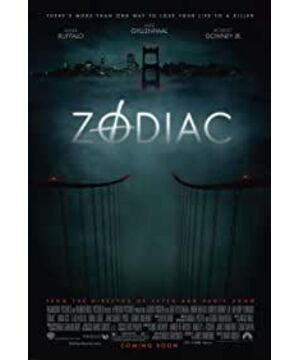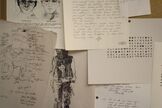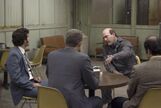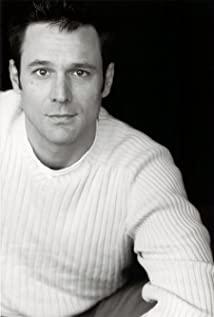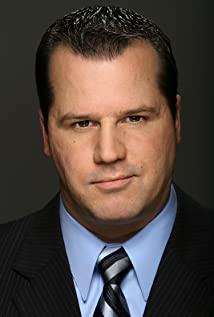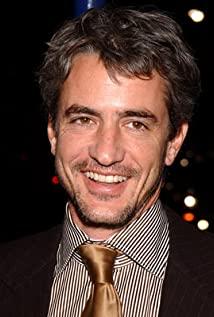Normal life in "Zodiac" , slow response
Many movies are like a vessel, the director is like a scientist, set the environment and rules for this vessel, spray some poison and put some poisonous gas, and then put a few flies in to study them in various situations The reaction depends on how they flutter and struggle. This kind of movie is like a humanity test device, extreme ones such as "Battle Royale" and the like, and movies with various war backgrounds are common, and "Schindler's List" is a typical example. Set up a seemingly irreversible situation, and then watch the pedestrian mutation and exposure. Several previous films by David Fincher, such as "Alien", "Fight Club" and "The Seven Deadly Sins", also have a bit of experimentation with people. This kind of humanity "experiment" with movies is mostly violent, such as watching how people tear their faces in a war.
"Zodiac" is actually such an experimental instrument. The environment set up is the indestructible zodiac murder case. The flies used in the experiment are the people who hope to solve the mystery of this case, including the main detective David, Bill, the newspaper reporter Paul, and the curious manga author Glen Smith. The only difference is that this experiment is a protracted chemical reaction, not intense, but the result of the reaction is more frustrating than the radical changes in the paranoid environment.
Because of the "Seven Deadly Sins", people would think that "The Zodiac" will also have waves of excitement, but when you look at it, you will find that David Fincher has spent so much time, and the focus is not on suspense, reasoning, It's not about making speculations or conclusions about this case, nor about creating a lot of cool visual effects like in Fight Club. This weird director used a weird theme this time, but he wanted us to look at the persecution of people's hearts and lives caused by fruitless efforts in the long days of ordinary life.
The time subtitles inserted by David Fincher in the film best reflect this persecution. At first, the subtitles only wrote what happened "a few hours later, a day later, a few weeks later". At this time, every new time There are seemingly significant developments in every case, and both detectives and reporters will find important clues or have new reasoning. Later, the time span became larger and larger, and more and more subtitles appeared "a few months later, a year later", and finally became "seven years later". It seems that there are new clues and information at every point in time, but many clues become fearless. These subtitles have been played from the 1960s to the 1990s, and as the time span becomes larger and larger, this feeling of time passing but in vain has become more and more serious. Day after day analysis, tracking, and accumulation of time, these People drag down until they are desperate.
This does not mean that the reasoning in this movie is meaningless. In fact, the reasoning in the movie is quite fascinating. Every word the detectives said and many details observed made people feel that they were not far from solving the case. They have witnesses, they have survivors in the case, and even survivors testify for them. Grisch Mies later found the basement mentioned in the killer code letter, and the atmosphere in the basement was also extremely tense. When they went to investigate and interrogate Arthur Lee Allen, they even saw the Zodiac watch with the zodiac sign on his hand. But these people always cannot get direct evidence, such as the results of Lee Allen's handwriting appraisal. Although there were precise reasoning and "unquestionable" doubts about someone, the lack of direct evidence required by law in the end made these people's efforts ineffective. After thirty years of ineffective efforts in the eagerness to solve the case, the results will of course not be good. The reporter Paul, who had been eager to investigate, stayed in the wilderness because of the threats of the zodiac. Detective Bill handed over his resignation and went home with the children. He hoped he could live a good life for a few days. Detective David, who has been insisting on the investigation, has never found the results of the investigation. In the end, his superiors suspected that he had forged the password letter of the Zodiac Killer, and he was ordered not to get involved in this case. Glen Smith, who is curious about solving puzzles, wrote a book about the Zodiac Killer and "to see the murderer standing in front of me, and I can tell from his eyes that it is him", so that his wife is scattered.
The rhythm of the movie is like a sick person, weak, slowly swallowing. This kind of laziness is the main theme of the film, the film rhythm and camera movement are like this. A slow motion was used at the beginning of the film. On Christmas Eve, the woman who was about to be killed by the zodiac killer drove the car slowly. The camera looked out the window next to the co-pilot. The house on the roadside slowly retreated, and the fireworks in the distance continued to disperse, very lazy. This kind of shot that looks full of laziness is especially like the Coen brothers' "The Absent Man". In it, Billy Bob Thornton's protagonist Ed is a guy who doesn't like talking and walks slowly. When they got into serious trouble in the murder case, the Coen brothers used a slow motion to send Bob Thornton to walk down the street, and they could see the white smoke from the cigarettes in their hands as if they were freezing in the air. The burning fireworks at the beginning of "Zodiac" also seemed to be solidified in the night.
The story progressed slowly. The officers at the police station seemed not to be too anxious about this matter. The collaboration between police stations at the murder scene was also very inconvenient. They shirk each other, and even because there was no fax machine, a lot of information was not passed on at all. Of course, the atmosphere will occasionally be tense for a while, such as the basement scene, the dark room, the strange noise, and the evil owner, which makes people feel chilly and feels that this is the house of death. In the end, nothing happened. The scene of the murder by the lake turned into slow motion again when the bullet hit the body.
We watched these people working hard, and we also expected the results, but nothing happened, so the feeling of weakness became more and more serious. Like these people who worked hard, we didn't bother to pay attention to the results anymore. Detective David has appeared at the scene of the taxi driver's murder three times, and each time became more sluggish. The first time was when he and his partner Bill detect the crime scene of the Zodiac Killer. They were young and confident, carefully searching for physical evidence, and restored the crime scene; the second time was a year later, also with Bill, the scene was gone long ago, and the case is still pending. Then, there was no initial excitement on their faces; the third time was many years later when David, who had been delayed by this case for many years, came to this street corner alone, feeling melancholy as if he missed something lost.
This sickly rhythm, scenes, and character performances deliberately create a feeling of procrastination, just like ordinary life, just like everyday work. Even the Zodiac has been dealt with in no different way, except for writing a few strange letter letters, the criminal tactics are not new at all. He didn't have the horror mask like Hannibal, and he wasn't as distinctive as the chainsaw massacre. The two witnesses at the crime scene said that the murderer was a little fat, a little short, and "very ordinary." Police detectives, reporters, and comics authors are all ordinary and inconspicuous. They just seek a result in order to end the ordinary work of a police detective investigating a case, a reporter reporting a case, and satisfy the ordinary hobby of a puzzle-solving enthusiast. But the "ordinary" power waits until we discover it before we become aware of it. The so-called dripping water through rocks is roughly the same. And David Fincher also tells us how "ordinary" tortures people.
Many people like to compare "Zodiac" and "Memories of Murder" because they are all about real cases where no murderer was found, and they think that the "Zodiac" which is the same as "Memories of Murder" does not touch and excavate like "Memories of Murder". The depth of humanity and society. In fact, fierceness does not necessarily mean depth. What attracts "Memories of Murder" is the film's techniques and techniques that have always created tension. It swiftly describes the transformation of a person's personality from calm to tyrannical in a short period of time. Bong Joon-ho focuses on human nature. In the drastic changes, everyone's performances also have typical Korean-style exaggerated performances. These make "Memories of Murder" very "ordinary". But I prefer "Zodiac" because David Fincher understands better what is changing people. In "Zodiac" he shows the torture of real life. It has no ups and downs, is not intense, and is "ordinary." "It's more pertinent to people's hearts, and it's even more helpless.
(My rating: 8/10)
Film information
[Zodiac] Zodiac (2007)
Country: US Distribution company: Paramount Release date: March 2, 2007 US
Director: David Fincher Screenplay: James Vanderbilt (screenplay), Robert Graysmith (original novel)
Starring: Jake Gyllenhaal, Robert Downey Jr., Mark Ruffalo
View more about Zodiac reviews


